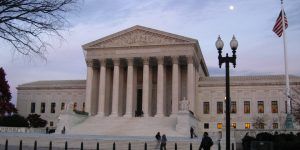 Ajay Singh Chaudhary in Public Seminar:
Ajay Singh Chaudhary in Public Seminar:
We Americans are “constitutional fetishists” in the apt phrase of the lesser-known mid-20th century critical theorist of law and economy, Franz Neumann. We tend to think that a particular order of state institutions — for example, our current incarnation of the separation-of-powers — embodies the essence of democracy instead of looking to see what kind of politics, democratic or otherwise, such institutions facilitate. Although Neumann was speaking in the broad strokes of theory, the United States is, perhaps, the case-in-point.
Far from living at the bay of “the mob,” the United States is institutionally the least democratic among nominally democratic countries in the OECD world. When the political scientists Alfred Stepan and Juan Linz — who had devoted their careers to studying democratization around the world – turned their analysis to the United States, what they discovered was a not a pretty picture. While most democratic states have at best one or two so-called “veto players” — checks on the expression of popular sovereignty through elected representation — the United States has four. The United States has an additional four further amplifications of the power of an elected minority. Taken together, these establish the United States as the least representative democracy among developed democracies in the world. Stepan and Linz were hardly radical scholars but the implications of what they observed in the 1990s is indeed quite radical today.
It’s not that somehow this system has gone off the rails in recent years. Rather, as democratic pressures for the recognition of women and racial minorities as full human beings – to redress our gross economic inequality, to fundamentally transform our state and society into ones of freedom and flourishing for all — have increased, our constitutional order has acted precisely as it was intended. The “founders” feared a democratic society — that eventually an ever increasingly enfranchised majority would encroach on the privileges and the property of society’s “betters.”
More here.
